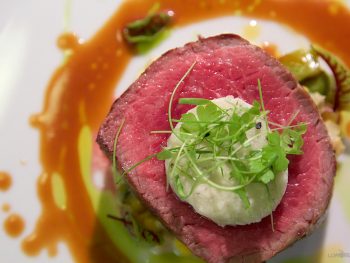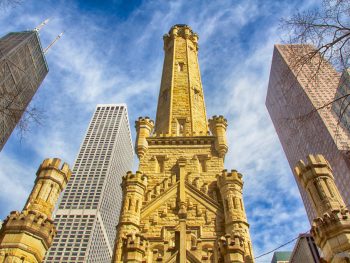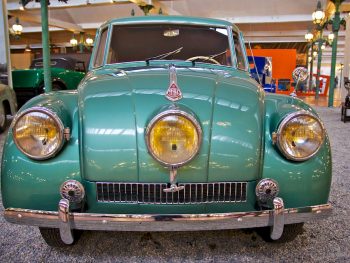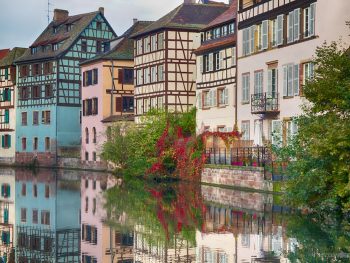
Kingdom of Bhutan
Don’t worry be happy.
That might as well be the national song of the Asian Kingdom of Bhutan. It’s like no place I’ve ever been. I had the opportunity for to learn more about Bhutan and to actually travel to Bhutan and I had to grab it.
This is a beautiful country where the hillsides are dotted with ancient monasteries and colorful prayer flags blow in the breeze. There are no traffic lights; no chain stores; no billboards. The only signs I see are telling the passersby to “fight the HIV Virus, not people” and “It is not a Rally, Enjoy the Valley.” I knew visiting Bhutan was going to be special.
Travel to Bhutan
From the moment I set foot in the country and meet my local Exodus Travels guides, Dorji and Sonam, I feel a peacefulness, a contentment. Happiness. There it was.

About the Bhutan Culture of Gross National Happiness
Since the early ’70s, Bhutan has rejected the GDP (Gross Domestic Product) as the only way to measure progress. Instead, this tiny nation has championed a new approach to development, which measures prosperity through the specific principles of Gross National Happiness (GNH): economic self-reliance, conservation of the environment, good governance, and cultural preservation. For example all citizens are required to wear the National Dress while in public during the day. The men wear a knee-length robe tied with a belt called a gho and women wear a kira, a long dress.
While they wear dresses, it may surprise you that it’s the women who “wear the pants” in Bhutan. They are traditionally the land owners and run most family affairs. Both men and women work in the fields or own small businesses, but it’s the men that often cook and make or repair clothes.

Bhutan and the Environment
Plus, here, protecting the environment has become part of their constitution. The country has pledged to remain carbon neutral and to ensure that at least 60% of its land will always remain under forest cover. They are on the path to becoming the world’s first totally organic country. They have banned export logging and have even instigated a monthly pedestrian day that bans all private vehicles from the roads. It doesn’t mean they completely reject economic growth (there largest industries are agriculture and fast-growing hydroelectric power, which is exported next door to India), its just not at the expense of the good things in life.
Bhutan: The Last Shangri-La
Despite its focus on national wellbeing, Bhutan of course, isn’t perfect. While slowly growing, it still remains one of the poorest nations on the planet. A quarter of its 750,000 people live below the poverty line, and many still live without electricity. There has been a slow rise in crime, a growing gang and drug culture, and a rising ethnic conflict due to the expulsion of one-fifth of its population (mostly ethnic Nepalese) in the name of preserving the Tibetan Buddhist culture and identity. After many years in refugee camps, many are now moving to host countries like Canada, Norway, the United Kingdom, Australia, and the United States. The U.S. admitted 30,870 refugees between 2008 and 2010. Of course, I don’t see any of problems while here. Tourism is very controlled since you remain with a guide the entire time.
Travel to Bhutan
Until quite recently, this “last Shangri-la” was truly off the beaten path and inaccessible due to its geography and a deliberate desire to remain this way. Bhutan is a remote country tucked away between two big neighbors (literally and figuratively), India and China.
This conservative Buddhist kingdom high in the Himalayas had no paved roads until the 1960s, was off-limits to foreigners until 1974, and only just granted television and Internet access starting in 1999. Can you imagine the culture shock when the Kardashians, gansta rap, and Walking Dead hit the airwaves here?
Because of its isolation, Bhutan had been able to preserve much of its Buddhist traditions and keep its landscape free from unnatural interruptions like signs, billboards, and advertising. Now, some channels have been banned, but it will be interesting to see how this tiny bastion of times-gone-by changes over the next few decades.
The population is very young, so some of today’s kids have already grown up with Internet and television, making western dress, music, and smartphones quite common. Many of this new generation are moving to the cities or heading to India and rejecting the traditional agrarian lifestyle.


Planning a trip to Bhutan? Check out Global Gaz for the ultimate guide to Bhutan.
Many people I have spoken to don’t know much about Bhutan let alone have barely heard of it.
Some Bhutan Facts for you
- The first democratic elections were held in Bhutan in March 2008.
- They drive on the left.
- Locals had no television or Internet access until 1999.
- The country did not open up to tourism until 1974.
- It’s the only country in the world to ban the sale of tobacco.
- There are no traffic lights in the entire country.
- Bhutan had no electricity, no cars, and no phones until the 1960s.
- The first 20 students ever to complete high school graduated in 1968.
- English is their second language and taught to all school children.
- Bhutan is the first country in the world with specific constitutional obligations on its people to protect the environment. Among its requirements: At least 60 percent of the nation must remain under forest cover forever.
- Plastic bags are banned in Bhutan.
- The Driving of cars is banned on the first Sunday of the month…it is known as “pedestrian day”
- In Bhutan, healthcare is free for both residents as well as visitors.
- The national sport of Bhutan is Archery.

Bhutan is small (the size of Switzerland), but mountainous, so driving throughout the country can take a long time going up and over mountain passes. The fifth and current king, Jigme Khesar Namgyel Wangchuck, wed a commoner and daughter of a pilot, in 2011, and their photos are plastered everywhere. The beautiful, young couple were even on a pin my flight attendant wore on our Drukair flight into the country. His father, the fourth king, was responsible for the start of Gross National Happiness as well as many of the modern reforms in the country.
For even more info
Tourism in Bhutan
I am touring this beautiful, isolated country with Exodus Travels, the longstanding adventure tour company of the UK. A two-week trip just scratches the surface here, but the tour is giving me a great overview of this stunning and natural wonder.
As you can tell, this is like no place I’ve ever visited. Even the tourism industry has specific rules set in place to protect the culture and environment.
Want to visit Bhutan? Check out this Bhutan itinerary.
How to Visit Bhutan
With the exception of passport holders from India, Bangladesh and the Maldives, all tourists must travel on a preplanned, guided package tours.
In order to visit Bhutan, you must pay a per-day fee to the government ranging from $200-$300 per person depending on the size of your group and if it’s low or high season. It sort of becomes an “all-inclusive” country.
The fee includes:
- All internal taxes and charges
- Accommodation
- All Meals
- All travel with a licensed Bhutanese Tour Guide
- All Internal Transport
- Camping Equipment and Haulage for Trekking Tours
So while some recoil at hearing the hefty per diem tax, when you take into account all that it includes, it’s not really that bad. Yes, you could certainly travel cheaper independently, but, well, you can’t do that here. It certainly is a unique tourism model – one that does keep the country from being over run by tourists and backpackers, something you can easily the effects of just next door in Katmandu.
Getting There
The international airport in Bhutan is in the city of Paro. Two airlines operate flights to Bhutan: Drukair and Bhutan Airlines from just a few cities: Kathmandu, New Delhi and Kolkata (India), Dhaka (Bangladesh), Bangkok, Yangoon, and Singapore.
Tour Companies
The Tourism Council of Bhutan also has a list of registered tour operators on its website. I traveled with Exodus Travels.
More posts on Bhutan:
Pin it!
Disclosure: This is part of a series of posts on Bhutan. I was a guest of Exodus Travels as part of a Navigate Media Group initiative. As always, all writing, photography, and opinions are my own.






















 Bhutan: The Approach
Bhutan: The Approach

Very cool! It is a country you rarely get to see. Definitely on my wishlist!
Thanks for reading and commenting Arjen! I feel very fortunate to have had the opportunity to visit!
It seems expensive at first but once you realize everything is taken care of it is really quite reasonable to see such a beautiful place.
Yeah, it’s not the tourism model that we are used to, but I think it benefits the country greatly, by not allowing it t be over run by tourists. This way, in some ways, it can bring in the same tourism money but with less people that could ultimately damage the environment, etc.
Awesome photos. I’ve wanted to go to Bhutan for a while. I even once applied to teach at a small college in Thimphu (I got a very confusing response to my application). Maybe I’ll try again next year.
Thanks so much Matt! I know you will get there and possibly before I get to JC! 😉
So amazing. And your photos: breathtaking. Well done.
Thanks so much Dalene. It’s such a photogenic country. Still sorting thru thousands of shots!
Some photos look like they were taken in Tibet, so lovely. Never been to Butan, but it’s of course on my list. What? Locals had no television or Internet access until 1999? So odd. Love those praying flags, there are the same in Lhasa.
Thanks for always checking in Agness! It really is a unique place that just opened up to the Western world. You should definitely go.
I’ve been to Bhutan twice and absolutely love the country. It’s probably my favorite country in the world to travel to, even if independent traveling is discouraged.
And btw, your photo “Prayer Flags on a Bridge” is amazing. Thanks for sharing!
Hey Ryan! Thanks so much! I really enjoyed some of the photography I was able to capture there. Amazing place. So cool that you’ve been twice!
This place sounds amazing!! Thanks for making me aware of it
My pleasure Andrea! That is the main reason for my blog…to bring people “along” with me for the ride and hopefully “teach” along the way. 🙂
Banned plastic bags – that’s pretty smart actually. 1999 and after would have been a really fascinating time to be in Bhutan – I’m sure there was a lot of conversation about the expanding access to outside information & preservation of culture.
I can’t wait to hear more about it!
For a small country, they are doing a lot of unique things. The rest of us could learn a thing or two. And preserving the culture and environment are tenets they fiercely protect.
Since the food is included in the tax are there specified places that you have to go to eat? Or can you go to any place and they just have to give you free food? I’m curious to know how that works. Thats an interesting little country 🙂
Hey Cailin! Yeah, since you can’t be in BHutan unless you are on a tour meant the food choices were quite limited. As much as I asked to eat at local places WITH locals, we mostly had to eat at “tourist” class hotel buffets. The food was good, but I definitely wanted to venture out.
Gorgeous photos, can’t wait to visit Asia again. I was to be our first stop but for some reason we went to South America 🙂 Safe travel.
Thx 2DMs! I really enjoyed getting into my photography again here.
I love the photo with the puppies!!! All these photots are realy great. And thanks for giving us a glimps into that part of the world.
Thx Laura! I know…the more I look at those puppy photos, the more it seems staged! Monks and Puppies!
Thanks for sharing. Bhutan has been on my list for years but the fees have kept it out of our budget. I’m living in Asia now so perhaps it will be possible soon. If we are not campers or Trekkers how many days would you suggest?
Hi Amber- You should definitely go! The fees seem high, but not so crazy when you realize it includes all your daily meals, hotels and transport. I think 10 days is good, but you could do less. The only thing is it is slow going driving around the country because of the mountainous terrain so you have to take that into account – it takes many hours to drive between each part. And there are no trains…yet!
bhutan, the land of gross national happiness, the only country that sends a quarter of its citizens as refugees and the world just stays ignorant.
Hey Terri- It is true theere are some human rights issues there that I touched on in the post. Unfortunately, no place is perfect or immune to our human downfalls.
Great info. I’m curious if tabacco is banned – did you still see any smokers? What about tourists smoking?
Thanks Sherry! The country is full of beauty AND interesting stories! The SALE of tobacco is banned, but technically smoking is not illegal. You can bring in a small amount to the country with you. So people bring it in from India. I only saw one person smoking…and it happened to be one of our guides!
Beautiful! Your first photo especially!
Thanks so much Jade!
It looks amazing! I’ve always wanted to go to Bhutan but sadly think I will be left to dream a while longer. Sadly by the time I do get to go much of the magic will likely be lost.
Thanks for the images and information. It’s nice to hear, if only a little, about the darker side of the country too.
Thanks Forest. Every place has it’s good and bad and Bhutan is certainly not exempt from that. I am sure I was only able to scratch the surface.
superb article…nice pics too…bhutan is on my wishlist for many years now….
Amazing photos, it must be agreat experience to visit this beautiful country. I hope I will have a chance to visit!
Hey Tom! Thanks for your comment. Check out the video post, if you haven’t already, and I think you will be booking your ticket!
Bhutan has always been tagged as a ‘third world country’ and ‘one of the poorest’, but to be honest, I think they are just mired in a situation where success is indeed measured by monetary and industrial prosperity. From what I know and what I’ve read in your blog, I came up with a conclusion that perhaps, Bhutan is actually one of the richest nations in the world – because it knows how to be contented, and it knows that real riches come from nature itself. In a very modern world like ours, it is not always that we hear about countries paying unwavering attention to their environment, right?
Fascinating. I’ve been curious about Bhutan since reading about the Happiness Index, which seems ridiculously pie-in-the-sky, yet deep down one would like everywhere to be like that. I am kind of cheering at some things you say, and groaning at others. Banning plastic bags and tobacco would be high on my approval rating, the enforced wearing of traditional clothes not so much. Young folk will always leave for the attractions of a more modern lifestyle. The hillsides here are littered with old cottages, which people have left to earn a better living in the tourist spots, and you can understand it. Life must have been hard here, and must still be hard there. It would be nice if there was some kind of happy medium, whereby things were preserved but modern conveniences could also be a part of normal life.
Thanks for chiming in Linda! I know what you mean. I was somewhat skeptical there. Is it just a grand marketing buzz term? but it did seem like the people (well the tour guides) really did embrace the happiness concept.
Amazing photos, it must be agreat experience to visit this beautiful country. I hope I will have a chance to visit!
Thank you! It was so photogenic.